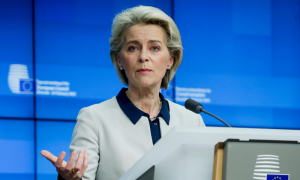Garmnets-Textiles Priority of the government is to enhance exports in textiles

ISLAMABAD, Oct 1 :The priority of the government is to enhance exports volume in textiles sector for increasing revenue and economic growth. “We have paid Rs 25.7 billion to the textile sector under the first phase of Prime Minister’s Trade Enhancement Package by June 30, 2018, senior officials at the Ministry of Commerce and Textile told here Monday.
“We want to revive confidence of the textile sector through the Trade Enhancement Package”, he remarked. Rs. 2.6 billion was disbursed to the textile sector in first two months during Phase II
from July 1 to August 31 2018, he said.
Replying to a question, he said the government had planned to expand coverage areas under the Trade Enhancement Package to remaining industrial sectors including pharmaceuticals. “We are
committed to providing an enabling environment for the industrial sector,” he said. The official said that through this package, the cost of doing business would come down in the country.
The Ministry of Commerce and Textile had assured payments through Prime Minister’s Trade Enhancement Package to the textile sector by February 2019 to enhance the country’s exports.
The government, he said, had also given relaxation on the import of textile machinery for the modernization of industry and to enhance the capacity of the sector. He said the government gave priority to facilitating the textile sector and helping it in gaining competitiveness in order to enhance the country’s exports.
Replying to another question, he said the Ministry is offering multiple training courses focusing on different areas of textile sector to enhance the capacity of its workers. Garments, fashion,
apparel design, cutting for lingerie making, line supervisory skills and knitting machine operators training are the areas of these capacity building courses, he said. He further said that the training
program’s main objective is provision of skilled workforce to make textile industry more competitive. The Ministry will cover the costs incurred in the areas of trainee stipend, trainer’s salary, raw material cost, social mobilization and evaluation, he added.





